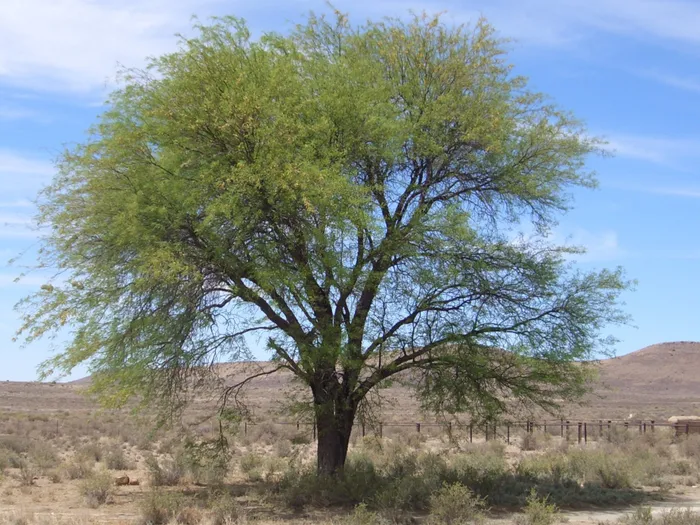Could mesquite coffee lead to the next ‘diamond rush’ for the Northern Cape?

The Mesquite tree is an invasive alien vegetation that has taken over 8 million hectares of farmland in the Northern Cape . Pic Supplied The mesquite tree is an invasive alien vegetation that has taken over 8 million hectares of farmland in the Northern Cape . Picture: Supplied
On the banks of the Orange River in the small town of Prieska, there is a product being harvested that, in time could change the health and daily coffee habits of the world. The mesquite coffee beans could be the next the Northern Cape’s next big diamond find.
South African entrepreneur, Brandt Coetzee discovered that when the seedpods of the tree are roasted to enhance their rich caramel flavours it produces a low GI coffee-like brew, that energises, but, without the side effects of caffeine.
Since the 19th century, the area has been invaded by alien vegetation, the thorny mesquite tree.
The mesquite tree is an invasive alien vegetation that has taken over 8 million hectares of farmland in the Northern Cape and is considered a huge problem for farmers, having a massive impact on the environment and water resources.

For the past 26 years, two brothers, Aam and Brandt Coetzee have been researching the health and nutritional benefits of the Mesquite tree.
“In 1996, Minister Kader Asmal launched the ‘Working for water campaign’ nationally and I was living in Prieska,” Brandt Coetzee recalls.
“The infestation of mesquite trees, which is alien vegetation plays a major role in depleting water resources. This led me to researching how we can try to reduce their spread in a way that would also benefit the local economy”.
Mesquite powder is considered a superfood as scientists and researchers have discovered its unique restorative benefits for diabetes by regeneration of beta cells in the pancreas, which is vital for diabetics.
The pods produce a powder that can lower the glycemic index of any food that it is added to, meaning that anyone on a low GI diet can still consume carbohydrates. They simply have to add a sprinkling of mesquite powder to the meal.
The brothers started producing pure mesquite powder in supplement form, for blood sugar support, helping diabetics to lower their blood sugar levels.
In 2020, Brandt Coetzee decided to experiment with roasting the pods for a coffee-like brew. They designed a convection oven for dry roasting the pods and after much brewing and sipping, MannaBrew’s Mesquite Superfood Coffee was created.
“Traditionally mesquite trees have been harvested for their wood. I had a furniture export business that was exporting furniture made from mesquite wood to the United States, however, with the rand being strong against the US dollar, it was no longer profitable for the importers to import our products. That’s when I started looking at alternative ways to utilise the mesquite trees,” Brandt Coetzee explains.
There is a small window of about two to three weeks for harvesters to collect a year’s supply of the mesquite seedpods before the summer rains start to fall. Due to the thorny nature of the trees, the pods have to have fallen off the tree so that the sugar content is correct, meaning that they have to be manually harvested.

When the pods fall they need to be harvested immediately. If they become wet the beans ferment, which can cause aflotoxins.
The pods are sorted by hand to ensure they are of the highest quality, before being weighed, put into bags, and transported to Somerset West for roasting.
The manual harvesting of the pods creates employment opportunities for more than 1,000 workers in the poverty-stricken Northern Cape, where only 36% of the population is employed.
“Currently we harvest 50 - 60 tons per year, however, we would be able to harvest up to 400 000 tons of Mesquite powder per season if the demand increased, making a huge impact on the environment and creating many more job opportunities”.

How does it taste?
The unique taste of mesquite coffee brew took me by surprise because it was unlike anything I had tasted before. Unlike other coffee substitutes, mesquite is naturally creamy and sweet. Mesquite coffee brew is 100% pure mesquite powder with no chemicals or additives.
As it contains essential sugars it helps to revitalise the body, so we still get the energy boost that we would from coffee without the highs and lows of caffeine. Coffee beans cause acidity in the body, whereas Mesquite doesn’t have those reactions in the digestive system
To summarise , it looks like coffee, can be made the same way as coffee, and enjoyed the same way coffee would be, but it is a superfood that tastes really good.
IOL